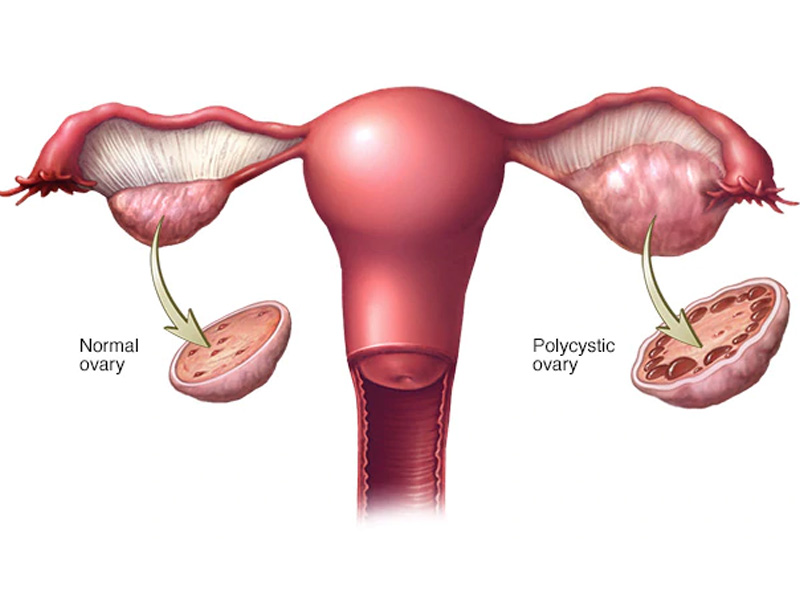 Polycystic ovarian syndrome (commonly known as PCOS) is one of the most common hormone disorders in women, affecting an estimated 1 in 5 women.
Polycystic ovarian syndrome (commonly known as PCOS) is one of the most common hormone disorders in women, affecting an estimated 1 in 5 women.
Diagnosing PCOS:
A diagnosis of PCOS is made when at least two of the following three criteria are met:
- Irregular periods:Infrequent, irregular or prolonged menstrual cycles are the most common symptoms suggestive of PCOS.
- Excess androgen: Elevated levels of male sexual hormones in women may result in physical signs such as excess facial and body hair (hirsutism) and occasionally severe acne and male-pattern baldness. The exact level of these hormones can be measured in blood by doing certain blood tests.
- Polycystic ovaries:Ovaries may be enlarged and contain follicles that surround the eggs. As a result, the ovaries might fail to function regularly and release eggs properly and this leads to difficulty in conception. Polycystic ovaries are often seen on the USG.
Cause of PCOS:
The exact cause of PCOS is not known. Most experts think that several factors, including genetics, play a role. It is also widely known that women with PCOS have a high level of androgens (male sexual hormones) and a higher degree of insulin resistance.
Treatment of PCOS:
PCOS treatment focuses on managing the individual concerns of the patient, such as infertility, hirsutism, acne or irregular menstrual cycles. Treatment includes dietary changes, lifestyle modification, weight reduction and medications to address the specific concern.
Pregnancy and PCOS:
Having PCOS does not mean that pregnancy is not possible. In women with PCOS, the hormonal imbalance and follicles interfere with the growth and release of eggs from the ovaries (ovulation). Failing to ovulate can lead to difficulty in falling pregnant. Ovulation induction drugs can be given in women with PCOS to help them fall pregnant apart from dietary and lifestyle changes.





















